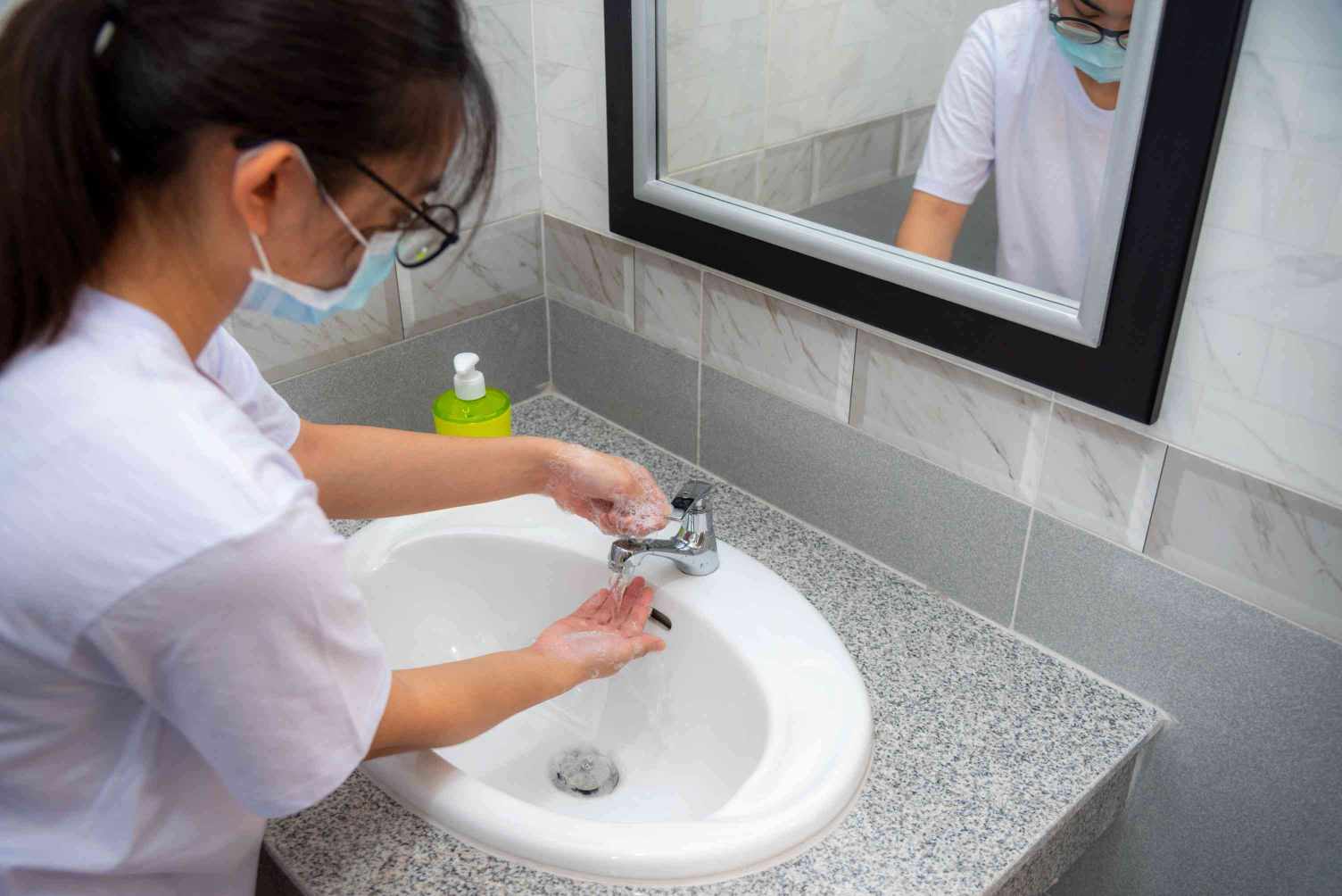
Living in a PG (paying guest) accommodation can be a transformative experience for students. It is often their first step into independence, away from the protective environment of their family homes. This transition, while exciting, brings with it a host of challenges and responsibilities. Navigating this new phase successfully requires a blend of academic prowess and essential life skills.
Life skills are the abilities that enable individuals to deal effectively with the demands and challenges of everyday life. For students living in PG accommodations, these skills are not just beneficial but crucial. They help in managing daily tasks, interacting with peers, balancing academics with personal life, and ensuring physical and mental well-being. The environment in a PG is quite different from home; there is less supervision, more freedom, and a diverse set of people to interact with. This makes it an ideal setting for students to develop and hone their life skills.
The importance of life skills cannot be overstated. They foster personal growth, improve social interactions, and prepare students for future challenges. In a PG setting, these skills range from basic household management to complex emotional intelligence. They equip students to handle various situations, be it a conflict with a roommate, managing finances, or dealing with stress. As students navigate their academic journey, these skills ensure they do so with confidence and competence.
In this blog, we will delve into the importance of life skills for students living in PG accommodations. We will explore specific skills that are essential for thriving in such environments and provide practical tips on how to develop them. By the end of this discussion, students will have a comprehensive understanding of why life skills are vital and how they can cultivate these skills to enhance their living experience in PG accommodations.

Importance of Life Skills
Life skills are essential for everyone, but for students living in PG accommodations, they are particularly crucial. These skills not only help in managing day-to-day activities but also contribute to overall personal development and future success. Here are the key reasons why life skills are important for students living in PG:
- Time Management: Learning to balance academic commitments with personal life is crucial. Effective time management helps in meeting deadlines and reducing stress.
- Organizational Skills: Keeping personal space tidy, managing study schedules, and maintaining a balanced routine are essential for productivity and well-being.
- Budgeting: Understanding how to manage finances, create budgets, and stick to them is critical for students who are often on limited allowances.
- Saving: Learning to save for emergencies and future needs fosters financial stability and responsibility.
- Personal Hygiene: Maintaining cleanliness and personal hygiene prevents illnesses and promotes a healthy lifestyle.
- Effective Communication: Being able to communicate effectively with roommates, peers, and landlords helps in building good relationships and resolving conflicts.
- Listening Skills: Active listening is crucial for understanding others' perspectives and fostering positive interactions.
- Self-Awareness: Recognizing and understanding one's emotions helps in managing stress and maintaining mental health.
- Critical Thinking: Developing the ability to think critically and solve problems efficiently helps in handling unexpected challenges.
- Decision Making: Learning to make informed decisions ensures better outcomes in both academic and personal life.

Life Skills for Students Living in PG
Living in a PG accommodation offers students a unique opportunity to develop a wide range of life skills. The following sections outline specific skills that are particularly relevant for students in this setting, along with practical tips for cultivating them.
Time Management
- Create a Schedule: Use planners or digital tools to create a daily or weekly schedule. Allocate specific time slots for studying, chores, and leisure activities.
- Prioritize Tasks: Identify urgent and important tasks and prioritize them. Use techniques like the Eisenhower Matrix to differentiate between tasks.
- Set Goals: Define short-term and long-term goals. Break them into manageable tasks and track your progress regularly.
- Avoid Procrastination: Use techniques like the Pomodoro Technique to stay focused and avoid procrastination. Take regular breaks to recharge.
Financial Management
- Budgeting: Create a monthly budget outlining income and expenses. Track your spending to ensure you stay within the budget.
- Saving: Set aside a portion of your allowance for savings. Use a savings account or a jar for emergency funds.
- Expense Tracking: Use apps or spreadsheets to track daily expenses. Identify areas where you can cut costs.
- Smart Spending: Make informed purchasing decisions. Look for discounts, buy in bulk, and avoid impulse purchases.
Health and Hygiene
- Nutrition: Learn to cook basic, healthy meals. Plan your meals to include a balanced diet with fruits, vegetables, proteins, and grains.
- Hygiene: Follow a daily hygiene routine including regular showers, dental care, and clean clothing. Keep your living space clean and clutter-free.
- Exercise: Incorporate physical activity into your daily routine. Join a gym, take up sports, or practice home workouts and yoga.
- Sleep: Ensure you get enough sleep each night. Create a bedtime routine and avoid screens before sleeping.
Communication Skills
- Active Listening: Practice active listening by giving your full attention to the speaker, avoiding interruptions, and responding thoughtfully.
- Clear Expression: Improve your verbal and written communication by being clear, concise, and respectful. Practice public speaking and presentations.
- Non-Verbal Communication: Pay attention to body language, eye contact, and facial expressions. These non-verbal cues play a significant role in communication.
- Conflict Resolution: Learn to address conflicts calmly and constructively. Use techniques like "I" statements and active listening to resolve disputes.
Emotional Intelligence
- Self-Awareness: Reflect on your emotions and reactions. Keep a journal to track your emotional experiences and triggers.
- Empathy: Practice empathy by trying to understand others' perspectives and feelings. Engage in active listening and show genuine concern.
- Self-Regulation: Develop strategies to manage stress and emotions. Practice mindfulness, deep breathing, and other relaxation techniques.
- Social Skills: Build social skills by engaging in group activities, joining clubs, and participating in social events.
Problem-Solving Skills
- Critical Thinking: Enhance critical thinking by questioning assumptions, evaluating evidence, and considering different perspectives.
- Decision Making: Use decision-making frameworks like SWOT analysis or the Pros and Cons list to make informed choices.
- Creativity: Foster creativity by brainstorming, thinking outside the box, and exploring innovative solutions.
- Resilience: Build resilience by learning from failures, staying positive, and seeking support when needed.
Efficient time management is critical for balancing academics, social life, and personal responsibilities. It helps in meeting deadlines, reducing stress, and improving overall productivity.
Tips:

Managing finances effectively is crucial for students, especially when living away from home on a budget. It involves budgeting, saving, and making informed financial decisions.
Tips:
Maintaining health and hygiene is essential for physical and mental well-being. It involves proper nutrition, personal hygiene, and regular exercise.
Tips:

Effective communication is essential for building relationships, resolving conflicts, and succeeding academically and professionally.
Tips:
Emotional intelligence helps in understanding and managing your emotions, empathizing with others, and building strong relationships.
Tips:

Effective problem-solving skills are essential for handling academic challenges, personal issues, and unexpected situations.
Tips:
Conclusion
The importance of life skills cannot be overstated. They help students manage their time effectively, handle finances responsibly, maintain health and hygiene, communicate better, and solve problems efficiently. These skills are not just useful for immediate challenges but are also essential for future success in personal and professional life.
For students living in PG accommodations, developing life skills is a continuous process. It involves learning from experiences, seeking feedback, and constantly improving. Practical tips such as creating schedules, budgeting, practicing active listening, and maintaining a healthy lifestyle can significantly enhance their living experience.
In conclusion, life skills are the foundation for a successful and fulfilling life, especially for students navigating the new and exciting world of PG living. By focusing on self-management, financial literacy, health and hygiene, communication, emotional intelligence, problem-solving, and adaptability, students can make the most of their PG experience and prepare themselves for a bright and successful future. These skills will not only help them thrive in their current environment but will also serve as valuable assets throughout their lives.
QUICK LINKS
POPULAR SEARCHES
BANGALORE
- PG/Hostel in Bangalore
- Boys PG/Hostel in Bangalore
- Girls PG/Hostel in Bangalore
- PG in Yeshwantpur
- PG in Christ University Yeshwantpur Campus
- PG near Ramaiah University
- PG in Mathikere
- PG near Christ College
- PG near Christ College Hosur Road
- PG near Christ University Main Campus
- PG near Christ University Central Campus
In and Around Hosur Road
- PG/Hostel near Hosur Road
- PG/Hostel near Christ College
- PG/Hostel near Christ College Main Campus
- Boys PG/Hostel near Christ College
- Boys PG/Hostel near Christ College Main Campus
- Boys PG/Hostel near Hosur Road
- Girls PG/Hostel near Hosur Road
- Girls PG/Hostel near Christ university
- Girls PG/Hostel near Christ University Main Campus
- Girls PG/Hostel near Christ College
- Girls PG/Hostel near Christ College Main Campus
In and Around Bannerghatta
- BoysPG/Hostel near Christ University Bannerghatta
- Boys PG/Hostel near Bannerghatta Main Road
- Girls PG/Hostel near Bannerghatta Main Road
- Girls PG/Hostel near Hulimavu
- Girls PG/Hostel near Meenakshi Mall
- Girls PG/Hostel near Christ College Bannerghatta
- Girls PG/Hostel near Christ University Bannerghatta
In and Around Koramangla
- PG/Hostel in Chikka Adugodi
- PG/Hostel near Chiklane
- PG/Hostel in BTM
- PG/Hostel in Tavarekere
- PG/Hostel near Christ university
- PG/Hostel near Christ University Main Campus
- PG/Hostel in Koramangala
- PG/Hostel in Saddaguntepalya
- PG/Hostel in SG Palya
- Boys PG/Hostel in Koramangala
- Boys PG/Hostel in Saddaguntepalya
- Boys PG/Hostel in SG Palya
- Boys PG/Hostel in Chikka Adugod
- Boys PG/Hostel near Chiklane
- Boys PG/Hostel in BTM
- Boys PG/Hostel in Tavarekere
- Boys PG/Hostel near Christ university
- Boys PG/Hostel near Christ University Main Campus
- Girls PG/Hostel in Saddaguntepalya
- Girls PG/Hostel in SG Palya
- Girls PG/Hostel in Tavarekere
- Girls PG/Hostel in Chikka Adugodi
- Girls PG/Hostel near Chiklane
- Girls PG/Hostel in BTM
- Girls PG/Hostel in Koramangala
In and Around Jayanagar
In and Around Kumaraswamy Layout
Write to us! We will be happy to reply your queries.
POPULAR SEARCHES
BANGALORE
- PG/Hostel in Bangalore
- Boys PG/Hostel in Bangalore
- Girls PG/Hostel in Bangalore
- PG in Yeshwantpur
- PG in Christ University Yeshwantpur Campus
- PG near Ramaiah University
- PG in Mathikere
- PG near Christ College
- PG near Christ College Hosur Road
- PG near Christ University Main Campus
- PG near Christ University Central Campus
In and Around Koramangla
- PG/Hostel in Chikka Adugodi
- PG/Hostel near Chiklane
- Girls PG/Hostel in Bangalore
- PG/Hostel in BTM
- PG/Hostel in Tavarekere
- PG/Hostel near Christ University
- PG/Hostel near Christ University Main Campus
- PG/Hostel in Koramangala
- PG/Hostel in Saddaguntepalya
- PG/Hostel in SG Palya
- Boys PG/Hostel in Chiklane
- Boys PG/Hostel in BTM
- Boys PG/Hostel in Tavarekere

